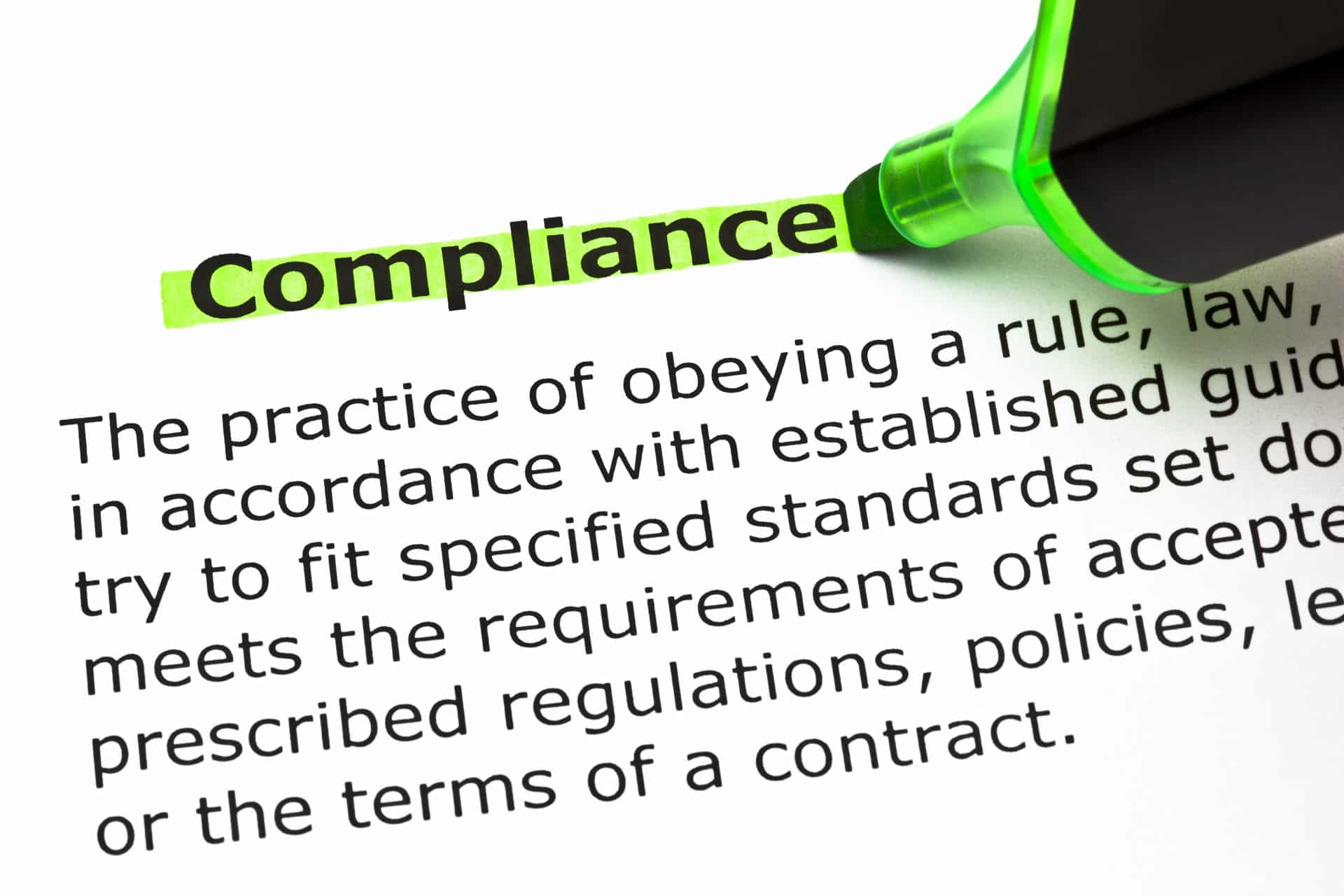What does compliance mean?
How does a company behave in line with rules and regulations and in accordance with standards and legal requirements? Compliance provides answers to this.
The term can best be translated as “fulfillment of (legal) requirements”. In plain language, this means that compliance covers all measures or activities of a company that are aimed at ensuring that the company’s business activities comply with statutory or legal requirements.
Typically, compliance is applied hierarchically, i.e. employees or departments are given a collection of rules and guidelines that prescribe certain behavior in very specific situations. In cases where there is no exhaustive list of “compliant behavior” due to the nature of the business, guidelines in the sense of honest, ethically desirable behavior come into play.
What is the importance of compliance for companies?
Especially internationally active companies operate in legal jurisdictions that are sometimes very different. This makes it difficult for employees and controlling bodies (management boards, etc.) to comply with the law at all times. At the same time, a company is liable for the actions of its employees, which means that a set of rules on compliant conduct must already be in place within the company organization.
This means that compliance in the practical sense goes hand in hand with rules and clear rules of conduct that every employee must adhere to. The larger the organization and the more diverse the business activities (e.g. abroad), the more extensive this compliance framework is and the more regularly it is put to the test. This includes both precautionary measures to prevent infringements from occurring in the first place, as well as preventative, supportive measures such as company control bodies, which, for example, make contracts above a certain order value dependent on the approval of a designated committee.
Compliance is therefore an absolutely necessary instrument or set of rules, in which specific requirements for the desired behavior of employees are listed in addition to generally applicable “self-evident principles”.
The risks of compliance violations
Compliance with legal requirements is not only crucial for business success, but also has clear significance in terms of potential damage. Violations of the law or non-compliant behavior can result in companies having to pay fines or face claims for damages. In times of digitalization, possible compliance violations are also regularly associated with reputational damage, i.e. the image or public image or perception of a company can suffer as a result. In addition, compliance rules should also protect employees from being held liable or having recourse themselves.
Typical areas in the context of which compliance principles are developed
- Corruption
- Violations of the Anti-Discrimination Act
- Unfair competition
- Violations of labor law regulations
- Data protection violations
- Money laundering
- Terrorist financing
- Foreign trade relations
- Antitrust issues
- Reporting obligations (e.g. if a company is listed on a stock exchange)
- Regional environmental standards
